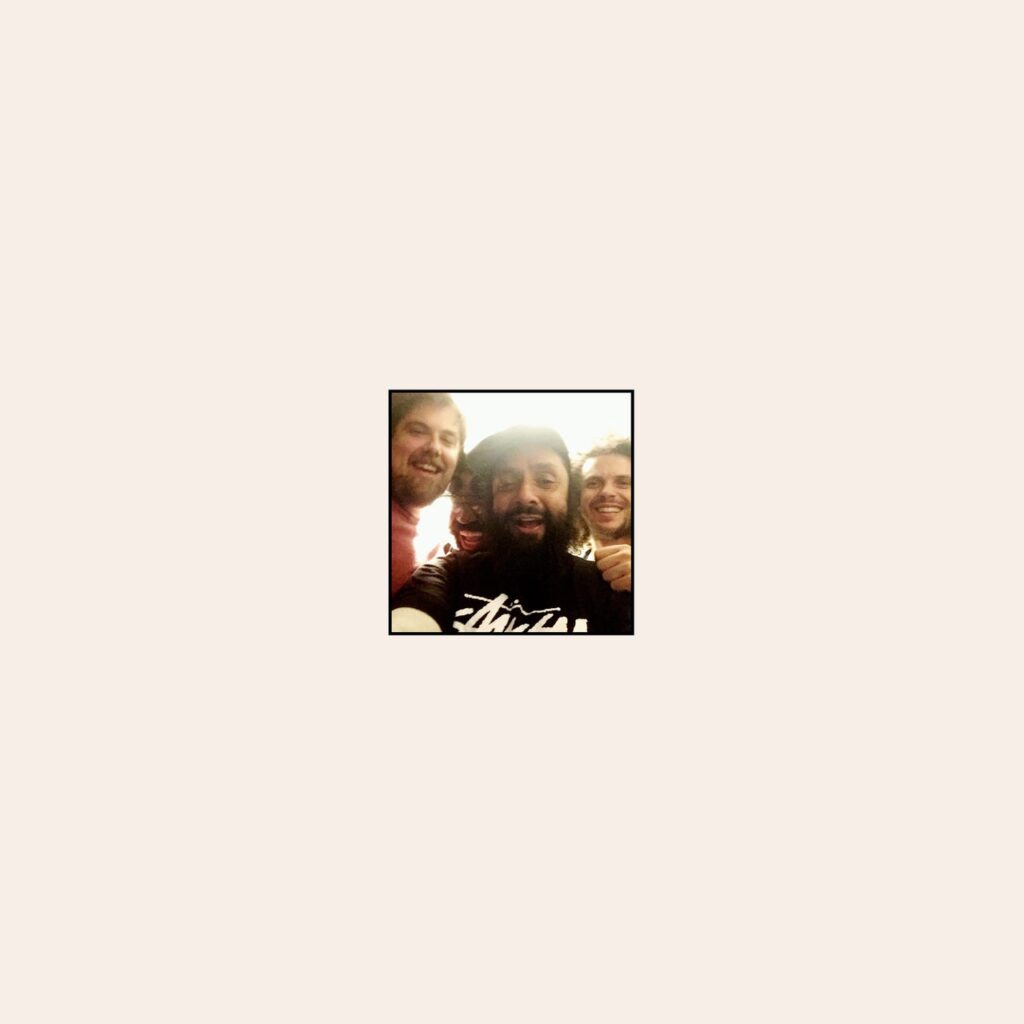For more than 150 years, amateur orators have been clambering atop soapboxes in Speakers’ Corner—as the quadrant along the northeastern edge of London’s Hyde Park is known—to rant, declaim, and pontificate. Karl Marx and George Orwell each took a turn there; so have innumerable preachers, cranks, and conspiracy theorists. Since 2006, some four miles to the southeast, MCs and poets have been taking the stage at Speakers Corner—a hip-hop and spoken-word night at the city’s Brixton Jamm nightclub—to the accompaniment of the in-house band. Further Out From the Edge is that group’s debut album, and despite the range of guests—singers like Tirzah, Sampha, and Lafawndah; poets Kae Tempest and James Massiah; woodwind player Shabaka Hutchings, of Sons of Kemet and the Comet Is Coming, and cellist Mica Levi—the record’s slow-burning hybrid of jazz, hip-hop, and dance music is a world away from the hoarse, anarchic tenor of the club night’s namesake. Channeling decades of UK soul, it’s elegant, reflective, and immaculately constructed.
The house band’s lineup has evolved over the years; these days, Speakers Corner Quartet consists of bassist Peter Bennie, drummer Kwake Bass, flutist Biscuit, and violinist Raven Bush. They honed their chops over innumerable improvisatory live sets, but Further Out From the Edge is the product of painstaking offstage labor. They began tracking the album’s raw material across four weekend-long jam sessions in 2016, and over the next seven years, Biscuit, the group’s de facto producer, gradually chopped and looped instrumental parts into their final shape, folding in additional sessions and guest contributions along the way. (Like Dilla, whose rhythmic signature influenced the group’s loping, cut-up grooves, Biscuit pieced together some of the album from his hospital bed during a lengthy convalescence.)
In many ways, it’s a best-of-both-worlds scenario. The quartet’s grooves lurch and roll with that deep-in-the-pocket funk of seasoned players vibing off each others’ energy; at the same time, a track like “Shabz Needs Sun,” featuring needling flute runs from Hutchings, simply wouldn’t sound the same played live. It thrives on the symmetry of the almost imperceptibly cut-up breakbeat, as well as the uncannily perfect repetition of Hutchings’ runs, suggesting something like Jean Paul Goude’s cover for Grace Jones’ Slave to the Rhythm, in which some deft razor-and-tape work turned the singer into an eerie, broken-mirror image of herself. All that time spent polishing sounds in Ableton makes for some striking details: The vibey “Wavelet” repeatedly zooms in on a captivating few milliseconds of snare flam, turning the offhanded accent into one of the song’s defining features.
If skeletal funk rhythms and a pervasive neo-soul melancholy tend to remain constant across the album, the group nonetheless pushes those influences in a variety of directions. The opening “On Grounds,” a wistful meditation on friendship and support networks sung by Coby Sey, begins with an ambient-jazz swirl reminiscent of Nala Sinephro and gradually builds into a chugging, house-adjacent four-on-the-floor. “Acute Truth” pairs a slow, swinging bass-and-drums groove with droning strings from Los Angeles cellist Kelsey Lu, suggesting an unexpected collision of London jazz hub Total Refreshment Centre with New York minimalist temple Theater of Eternal Music. Occasionally, they come remarkably close to full-on pop. The sliding bass chords of “Soapbox Soliloquy,” featuring a gorgeously expressive turn from rising London singer LEILAH, sound almost like a riff on Edie Brickell & New Bohemians’ ’90s folk-pop staple “What I Am,” while “Dreaded!” uses a similarly catchy guitar riff, along with the husky voice of French-Martiniquan singer Léa Sen, to fashion an unusually dulcet take on 4Hero-styled broken-beat soul.
While exactingly played and produced, Speakers Corner Quartet’s songs don’t always push forward stylistically; a few tracks, like “Can We Do This?,” built around Sampha’s familiar coo, feel like songs you’ve heard many times before. But there are moments of breathtaking originality. On “fix,” Tirzah sings softly—so softly that it sometimes seems as if she is singing into her own shoulder—over cut-up strands of acoustic bass, her voice almost imperceptibly multitracked, to add harmony and space. It’s not so much minimalist as miniature—an ink drawing on nubby paper that’s all the more captivating for its smallness.
Kae Tempest’s spoken-word poetry on “Geronimo Blues” is even more compelling. In elliptical verses, Tempest warily circles the contemporary condition, nodding at class warfare and self-medication in carefully delineated images and stream-of-consciousness rhymes (“How can a million blips with their silicone chips/And an Instagram twitch/Repair the deep cracks to the kingdom?”). Halfway through, the band falls briefly silent and then changes gear, mirroring a shift in the poem’s intensity as Tempest gathers energy and surges forward. The maneuver both reflects the group’s open-mic origins and testifies to the players’ sensitivity: For all the virtuosic energy they bring to the recording, they know when to let their featured vocalists shine.
All products featured on Pitchfork are independently selected by our editors. However, when you buy something through our retail links, we may earn an affiliate commission.

